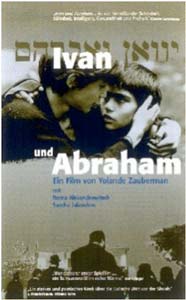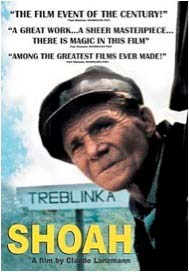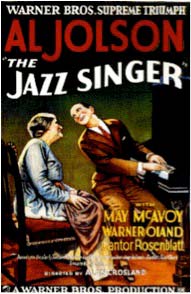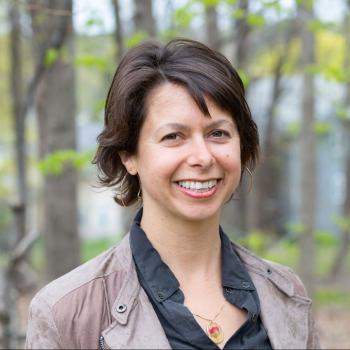The White Rose (1982)
This beautifully made film about moral resistance to the Third Reich by German filmmaker Michael Verhoeven was one of a number of films about Germany that are important to the Jewish experience. The theme about the need to resist evil governments has great relevance for audiences today.
Being Jewish in France (2009)
This terrific documentary on Jews in France has marvelous educational and historical value. After all, France is the country where Jews both received emancipation and suffered incredible traumas, from the Dreyfus affair, to the Holocaust, to contemporary issues.
The Dybbuk (1937)
This very important Yiddish film examines folk culture, mysticism, and man's relationship to God. Made in Poland in Yiddish (it's the only film production of the story in Yiddish), it is a snapshot of that world before it was destroyed.
Sharon Rivo is Executive Director of the National Center for Jewish Film.
 B. Ruby Rich
B. Ruby Rich
Where to and Back trilogy(1982, 1985, 1986)
Directed by Axel Corti and written by Georg Stefan Troller, these are the best films I've ever seen about the Holocaust. Troller, a Viennese Jew who fled to the U.S. as a teenager, then returned as an American soldier, based the scripts on his own life.
Me Ivan, You Abraham(1993)
Yolande Zauberman's film opens in a rural Polish shtetl in the 1930s and recreates the feel of Jewish life in the Pale of Settlement while it was still thriving. Ivan and Abraham are young boys who, sent off on an errand, return to find their town destroyed by a pogrom.
Like a Bride(1994)
Guita Schyfter's film is about a friendship between two girls in Mexico City during the turbulent 1960s. One is a protected Sephardic girl, the other "modern" Ashkenazi. The film follows their diverging political views and choices regarding love and marriage.
Local Angel (2002)
For American-Israeli filmmaker Udi Aloni, the refusal of Israel to consider a bi-national state amounts to criminal myopia. Especially moving is a scene of Yasir Arafat talking about how as children, Jews and Arabs played together.
Zero Degrees of Separation (2005)
The contradictions of Israel's occupation of the West Bank are shown through gay/lesbian relationships that cross Israeli/Palestinian lines. Elle Flanders' look into the lives of these brave couples illuminates the endemic distrust.
B. Ruby Rich has been a regular contributor to The Village Voice.
 J. Hoberman
J. Hoberman
Green Fields (1937)
This Yiddish-language movie based on a Yiddish play by Peretz Hirshbein is about a Hasidic scholar who leaves home to search for God and meaning. It's set in Lithuania but shot, on a shoestring, in rural New Jersey by Edgar G. Ulmer. The film is one of the most critically acclaimed American Yiddish talkies.
Waltz with Bashir(2008)
It's an animated Israeli film but additionally Jewish in that it deals with Jewish history and is largely concerned with the interpretation of dreams as a man tries to recall memories of his time as a soldier that he has shut out.
Shoah (1985)
Nine hours of interviews with Holocaust survivors make up this epic documentary by Claude Lanzmann about the Holocaust. The interviews are mostly about Chelmno, the death camps of Treblinka and Auschwitz-Birkenau, and the Warsaw Ghetto.
Jewish Luck (1925)
This silent Soviet film about an entrepreneur and his doomed money-making schemes is made with Russian intertitles. It's based on the writings of Sholom Aleichem.
Lost in America (1985)
A film about a couple who quit their jobs to travel across America, it is without explicitly Jewish content but nevertheless expresses a particular Jewish comic sensibility--a combination of alienation, idealism, self-absorption, and self-deprecation.
J. Hoberman writes film reviews for The Village Voice.
 Bernard Timberg
Bernard Timberg




